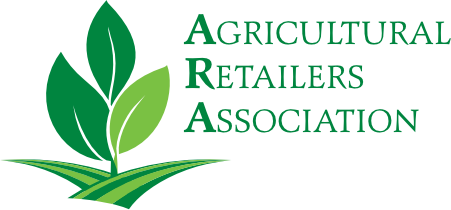Climate Stewardship & Sustainability Practices
With the world population estimated to reach 9 billion by 2050, the entire agriculture supply chain must work together to efficiently and responsibly lay the groundwork for the future. Not only do farmers look to their ag retailer for advice to boosts yields and profits, they are increasingly seeking out agronomic insights that also help improve soil, water and other natural resources.
Each year, ARA membership decides a new set of policy issues the association will focus on with elected officials and key regulatory agencies in Washington, D.C. The established set of policy issues typically drive discussions during the annual ARA Legislative Fly-In. Read more about ARA's proposed solutions related to climate change and sustainable ag practices.
ARA Position
- Work with ag stakeholders on sustainable water policies focused on increasing water supplies that benefits rural communities, U.S. agriculture, and the environment
- Work to ensure any sustainable practices within the ag sector are outcome-based rather than practice-based approaches
- Support proactive education and outreach to increase state and federal policy makers and consumers’ awareness of on farm sustainability
- Support policies to encourage the collaboration of governments, corporations, and philanthropic organizations with ag retailers, farmers and local communities to further the establishment and expansion of voluntary, incentive-based climate-smart ag programs
- As state and federal governments debate climate policies we encourage policymakers to consider consistency and workability across state lines and therefore prefer federal legislation as opposed to a state-by-state patchwork approach to climate protocols and offset markets
- ARA Climate Stewardship/Carbon Credit Working Group will continue its mission to define the interests of retailers and farmers in carbon markets and provide the education and tools needed to facilitate adoption of practices and provide a baseline of success in the carbon markets
- Work with the U.S. Department of Agriculture’s (USDA) Climate-Smart Agriculture and Forestry Strategy to ensure ag retailers have a voice in climate smart ag discussions and support voluntary and incentive-based implementation of these with farmer customers
- Support efforts to provide regulatory clarity and consistency regarding jurisdiction of the Clean Water Act and support a scientific basis for any initiative used to manage water resources
- Support the SPARC Initiative and the voluntary Best Management Practices (BMPs) for retailers to utilize in the application of crop input materials (both fertilizer and pesticides) to ensure sustainable and productive land
- Work to provide sound science for nutrient criteria and support states as the lead jurisdictions on any nutrient water criteria
- Work with 4R partners to increase ag retailer database membership and support the implementation of 4R nutrient management in USDA-NRCS stewardship program plans
- Support increasing federal investment in ag, forestry and food-related research substantially and continuously
- Support efforts to minimize food waste and loss
- Work with farm and ag commodity associations to support ag development work, including at federal agencies, to enhance global food security, ag productivity, and consumption of U.S. ag goods.
While the public has a growing interest in how food, fiber, and fuel is produced, the agricultural community continues to find innovative ways to increase efficiency and produce more with less, while protecting the environment. As farming becomes increasingly complex, many factors must be considered by farmers as they make decisions about planting; fertilizing; managing for disease and pests; and conserving energy, soil and water.
A new opportunity emerges for ag retailers to help farmers navigate this complex decision matrix by combining agronomic advice with sustainability insights to drive continuous improvement in the productivity, profitability and environmental outcomes of farmers’ operations.
Background
SPARC
ARA is a leading voice in the Sustainability Programming for Ag Retailers and Certified Crop Advisors (SPARC) Initiative. By providing voluntary, incentive-based tools to farmers, ranchers and forest owners, they are able to maximize the sequestration of carbon and the reduction of other greenhouse gas emissions, as well as increase the resilience of the land. ARA also in favor of:
- Supporting the development and oversight of private sector markets for GHG credits.
- Promoting public and private sector tools to incentivize farmers, ranchers and forest owners to prioritize and scale climate-smart practices.
- Offering incentives for farmers to reduce energy consumption, increase use of on-farm renewable energy, and make continued progress toward reducing the lifecycle GHG emissions of agriculture- and forestry-based renewable energy.
- Increasing federal investment in agriculture, forestry and food-related research substantially and continuously.
Food & Ag Climate Alliance
ARA is a member of the Food & Ag Climate Alliance, a coalition consisting of organizations representing all sectors of America’s agricultural industry as well as forest owners, the food sector and environmental advocates working together to define and promote shared climate policy priorities. Progress in addressing climate change and promoting sustainable agricultural practices can only be achieved by:
- Supporting voluntary, market- and incentive-based policies.
- Advancing peer reviewed, science-based outcomes.
- Promoting resilience and helping rural economies better adapt to climate change.
Get Involved with ARA
ARA members are committed to finding innovative ways to increase efficiency and produce more with less, while protecting the environment's natural resources. Join ARA's new Climate Stewardship/Carbon Credits Working Group to work with other retailers and suppliers to form priorities for ARA to share with lawmakers and regulators as climate-smart ag practices and carbon markets are seen as solutions to climate change. View this ARA blog post to see how ARA is leading in the climate and carbon credit market discussion.
Questions? Send questions to the ARA policy team of experts via the DC Help Desk.
